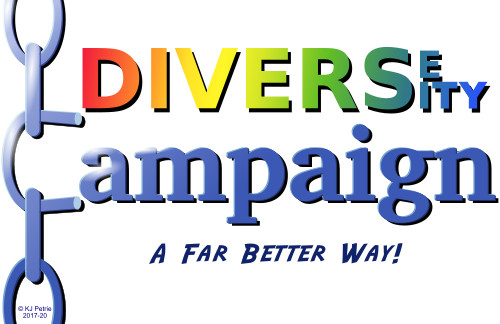Opinion
10th June 2020
The Perplexity of Past and Present
The murder of George Floyd has raised feelings so strong even the laws surrounding the Coronavirus lockdown have been unable to prevent large public assemblies of angry protestors gathering in cities across the world. Most of the demonstrators have been peaceful, although a small number have gone further and taken the law into their own hands. In America, this has led to violent exchanges between protestors and police. In this country, large gatherings have expressed smaller demonstrations of direct action in the form of damage to or defacing of monuments.
Partly, this is because America is a much more violent, more dangerous society than the UK, where people can be armed with more lethal weapons and consequently have greater reason to fear each other. People die in the US where here they face only milder consequences. Deaths in police custody happen in the UK occasionally. In America they are much more common. In the UK they are generally the result of neglect or errors. In the US it’s hard to conclude they are unintended.
However, behind these demonstrations on both sides of the Atlantic it’s clear there is a strong sense of injustice, an injustice which drives a strong sense of identity as a basis for political campaigning. That can be summed up in the slogan “Black Lives Matter.” Of course, it’s easy to respond, as I would, “All lives matter.” Of course they do, but that fails to capture the intensity of feeling behind these demonstrations, for they are driven by a sense of historic injustice continuing into the present.
Slavery and Imperialism come under the spotlight. Both are ancient institutions which existed almost from the dawn of civilisation. Empires were what successful rulers built, and slavery was the welfare system for those who could no longer support themselves. It was simply accepted that the greater the king, the greater the empire he conquered, and selling oneself into slavery for the payment of ones debts and exchanging personal responsibility for someone else’s support in exchange for total commitment of ones labour was a safety net for those who would otherwise see their families starve.
But that was a different age. Empires were limited in their geographical spread, and slavery varied enormously in its nature.
This formed the background for the rise of British influence in the world throughout the Modern Age. Beginning with the English “plantations” (which meant colonies of people rather than fields of crops), moving into the Triangular Trade and, on its abolition, into Empire justified by ridding the world of slavery, British wealth and power was derived from the exploitation of much of the rest of the world. With a history of great empires throughout the world and conquered peoples over the whole of civilisation, most British people saw nothing wrong or unnatural about this activity; it just continued what had always been. Although we mostly disapprove of the process now, the current world is largely the result of it. America is largely populated by the descendants of European settlers and African slaves. The indiginous people are relatively few and powerless. The Carribean is even worse, as the indiginous people are extinct. Britain owes its current position in the world to the wealth it built up through slavery and Empire. The descendants of slaves owe their very birth to the altered family lines resulting from mass displacement a century or two ago, without which different people would have lived in their stead.
How are we to deal with this history? Whoever we are, it is our history; our current condition was formed by it. No one can escape benefiting from the misery of those who suffered in the past, for we are where we are because of that. The Victorians erected a statue of Edward Colston, not because he ran a company which managed the ships which ran the Triangular Trade, but because he was a great benefactor to the city of Bristol. Yet his money came from the success of the company he ran, and slave trading was an essential part of its business model. The same is true of the sugar and tobacco industries, of the great heroic British leaders and generals of the past who oversaw imperial expansion and won victories to further that aim. Money came from the exploitation of others, and that money built Britain. If we removed every monument to a person with connections to Empire and slavery we’d have no one left to remember.
There must be a better way – to leave the monuments in place, but to annotate them with further memorials pointing out the mixed moral nature of much of our past, when people did good things with dubious acquisitions. We have to shelve the monochrome approach to history, to our understanding of human nature, for the story is not about heroes and villains, so much as a mixture of good and bad which continues to influence what and where we are. We need to face our past and acknowledge it, with all the complexity that encompasses, and recognise the truth of that mixed heritage we all must share, because it’s all we have. That is what Bristol now intends to do: to put the removed statue in a museum surrounded by momentos of the demonstration in which it was pulled down. What should we do with the empty plinth? I say leave it empty with a plaque explaining why, so we forget neither what was there nor how and why it was removed.

